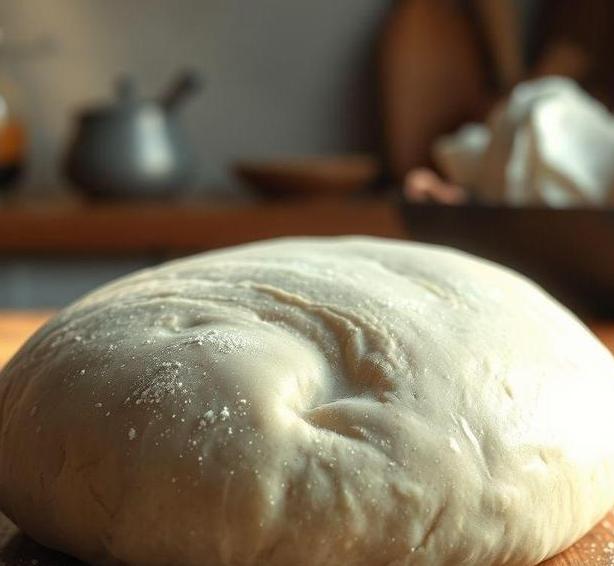Dough is one of those kitchen staples that can make or break a dish. Whether you’re making pizza, bread, cookies, or pastries, dough serves as the foundation for so many of our favorite foods. But what happens when dough sits around too long? Does it go bad? If so, how can you tell, and more importantly, how can you store it to make sure it lasts?
Let’s take a deep dive into dough’s shelf life, spoilage signs, and the best ways to store it, so your dough doesn’t turn from a baking helper to a kitchen disaster.
Can Dough Go Bad?
Yes, dough can absolutely go bad. Just like any other food product, dough is perishable and can spoil if left unchecked. The key ingredient in most doughs-flour-can attract moisture, while yeast or baking powder can lose its effectiveness or even ferment improperly, leading to a less-than-ideal outcome.
Here are a few factors that contribute to dough going bad:
- Yeast activity: In doughs that rely on yeast, once the yeast runs out of food or gets exposed to the wrong conditions (like extreme heat or cold), it stops working. This results in dough that won’t rise.
- Moisture: Flour, when mixed with water, can become a breeding ground for bacteria and mold, especially if left at room temperature for too long.
- Temperature fluctuations: Warm environments speed up fermentation and can cause dough to overproof, while cold environments can slow yeast activity.
Shelf Life For Dough

The shelf life of dough depends on several factors, such as the type of dough and how it’s stored. Here’s a quick breakdown:
-
Uncooked Dough (Room Temperature)
- Most doughs (such as cookie dough, bread dough, or pizza dough) should be used within 2-4 hours if left at room temperature. After this time, bacterial growth can increase, and the dough can overproof, which results in flat or dense products.
-
Refrigerated Dough
- Dough that’s stored in the fridge has a significantly longer shelf life. In the fridge, most dough can last anywhere from 2 to 5 days. However, some doughs, like pizza or bread dough, can last up to 5 days without significant degradation.
-
Frozen Dough
- If you’re not planning on using your dough anytime soon, freezing is the best option. Dough that’s frozen properly can last for 1-3 months. However, the texture may be slightly altered once thawed and baked, but it should still rise and cook properly.
Common Signs Of Spoilage
So, how do you know if your dough has gone bad? The signs of spoiled dough are often quite noticeable and easy to spot. Here’s what to look out for:
- Off smell: If the dough has a sour or overly fermented odor, it’s likely gone bad. Yeast doughs can develop a strong, alcoholic smell once the yeast has been overactive or fermented too long.
- Mold: Dough that’s been exposed to moisture for too long may develop mold. Mold can show up as white, green, or fuzzy patches on the surface.
- Change in texture: If the dough feels slimy, sticky, or overly dry, it’s a sign that the dough has gone bad. This is especially true for dough that’s been left out at room temperature for extended periods.
- Discoloration: Dough that has changed color-becoming yellowish or gray-may indicate that it’s no longer safe to use.
- Bloating: If dough that’s been stored in the fridge or at room temperature starts to puff up excessively, this could mean it’s been over-proofed and is now too old to use.
How To Store Dough?

Proper storage is crucial in extending the shelf life of your dough. Here’s how to store different types of dough:
-
Room Temperature
- If you plan to use dough within a couple of hours, you can keep it at room temperature in a lightly covered bowl. Use a damp cloth or plastic wrap to prevent the dough from drying out.
- For dough that needs to rest for rising (like bread or pizza dough), keep it covered in a warm spot but not too warm to avoid overheating and killing the yeast.
-
Refrigeration
- To store dough for a few days, wrap it tightly in plastic wrap or place it in an airtight container. This prevents the dough from drying out or absorbing unwanted odors from the fridge.
- For best results, divide your dough into portions (like for individual pizza crusts or rolls) so you can easily grab the exact amount you need.
-
Freezing
- Freeze dough in an airtight container or heavy-duty freezer bag. If you’re freezing individual portions, consider rolling the dough into small balls or logs (like for cookies or bread rolls) for easy access later.
- Let dough thaw in the fridge overnight for best results. If you’re in a hurry, you can thaw dough at room temperature for 2-4 hours.
Expert Tips
- Proofing dough: If you plan to store dough in the fridge for longer than a day, it’s important to underproof the dough before chilling. This means you should let it rise only partially and then refrigerate it. This allows you to continue the proofing process when you’re ready to bake.
- Use parchment paper: When freezing dough, especially for cookies or pizza, place parchment paper between layers. This makes it easier to pull out individual portions without thawing the whole batch.
- Label your dough: If you freeze dough, label it with the date and type of dough, so you know how long it’s been stored. This will help avoid confusion later, especially if you have several different types of dough in the freezer.
- Don’t over-mix: When storing dough, especially for long periods, don’t overmix it. Overworking dough can cause it to become tough, reducing its ability to rise properly during baking.
- Add a bit of olive oil: For dough that’s being stored in the fridge or freezer, lightly coat the dough with olive oil before covering. This helps prevent it from drying out or forming a crust while it rests.
FAQs
Can Dough Go Bad If Left Out Overnight?
Yes, dough can go bad if left out overnight. The high moisture content in dough provides a breeding ground for bacteria, which can lead to spoilage. If the dough contains perishable ingredients like dairy or eggs, it should not be left out at room temperature for more than 2 hours.
How Long Can Dough Last In The Fridge?
Dough can last in the fridge for about 1-3 days, depending on the type. Yeast dough typically lasts 2-3 days, while cookie or pie dough can last up to 1-2 days. It is important to store the dough in an airtight container to prevent it from drying out or absorbing odors from other foods.
Can Dough Go Bad If Frozen?
Frozen dough can last for an extended period, generally up to 3 months. After this period, the dough may lose its flavor or texture due to freezer burn or prolonged exposure to low temperatures. It is recommended to use dough within 2-3 months for best results.
What Are Signs That Dough Has Gone Bad?
Signs that dough has gone bad include an off smell (such as sourness or a rancid odor), discoloration, or visible mold growth. If the dough feels excessively sticky, dry, or tough, it may have spoiled. Additionally, if yeast dough fails to rise during proofing, it may be past its prime.
How Can I Tell If Pizza Dough Has Gone Bad?
Pizza dough that has gone bad may have a sour or fermented odor, which indicates over-fermentation or the presence of harmful bacteria. The texture may also be excessively sticky or dry, and the dough might not rise as expected. Mold or a change in color (such as gray or green) are also indicators of spoilage.
Can Cookie Dough Go Bad?
Yes, cookie dough can go bad, especially if it contains perishable ingredients like butter, eggs, or dairy. If stored improperly or kept for too long, cookie dough can develop an off smell, change in texture, or show signs of mold. It’s best to refrigerate or freeze cookie dough if not using it within 1-2 days.
Is It Safe To Use Dough That Has Been Left Out For A Few Hours?
It depends on the type of dough and how long it has been left out. Most dough should not be left out for more than 2 hours at room temperature due to the risk of bacterial growth, especially if it contains perishable ingredients. However, if the dough has been left out for a short period (less than 2 hours), it may still be safe to use.
Can Dough Spoil From Over-fermentation?
Yes, dough can spoil from over-fermentation. If dough is left to rise for too long, the yeast may consume all the sugars in the dough, leading to a sour taste and a weakened structure. Over-fermented dough may also become too sticky, difficult to handle, or develop an unpleasant odor.
How Should I Store Dough To Prevent It From Going Bad?
To prevent dough from going bad, it should be stored properly. If refrigerating, place it in an airtight container or cover it tightly with plastic wrap to prevent it from drying out. For longer storage, dough can be frozen, either wrapped in plastic or stored in a freezer-safe bag. Always allow frozen dough to thaw in the fridge before using.
Can Dough Go Bad After Baking?
Baked dough, such as bread or pizza, can still go bad over time, but it typically lasts longer than raw dough. Baked goods should be stored in a sealed container to maintain freshness. Bread can last 3-5 days at room temperature or up to 2 weeks in the fridge. For longer storage, baked dough can be frozen.